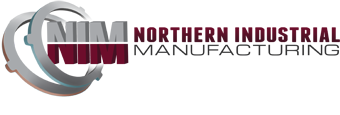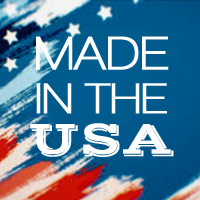No Tariff Parts Manufacturers Ensure Reliable, Cost-Stable Component Sourcing
The global manufacturing landscape has undergone dramatic transformation in 2025, with comprehensive tariff policies fundamentally altering the economics of international component sourcing. Original Equipment Manufacturers across automotive, heavy-duty truck, and construction equipment sectors now face unprecedented cost volatility that threatens production budgets, customer relationships, and competitive positioning. Traditional procurement strategies built around low-cost international suppliers have become liability sources rather than competitive advantages, forcing procurement teams to reevaluate sourcing approaches that once seemed optimal.
Current tariff structures impose duties ranging from 10% to over 100% on imported components, creating cost uncertainties that make accurate budgeting and competitive pricing extremely challenging. These additional costs compound throughout high-volume production runs, potentially adding hundreds of thousands or millions of dollars to annual procurement expenses while introducing volatility that complicates long-term planning and customer commitments.
For OEMs requiring precision components like shims, spacers, thrust washers, and lock plates for critical applications, the solution lies in strategic partnerships with domestic manufacturers who can provide the cost stability, supply chain reliability, and operational advantages essential for sustainable competitive success. The shift toward domestic sourcing represents more than a temporary response to trade policy changes—it reflects a fundamental recognition that supply chain predictability has become a critical competitive differentiator in markets where operational efficiency and customer responsiveness determine long-term success.
How No Tariff Parts Manufacturers Provide Cost Predictability for Budget Planning
Budget accuracy forms the foundation of effective procurement management and competitive market positioning. Current trade policies have introduced cost volatility that makes traditional budgeting approaches inadequate for managing component procurement expenses. International suppliers now face import duties that can change based on political decisions rather than market forces, creating cost uncertainties that complicate financial planning and competitive pricing strategies for OEMs across multiple industry sectors.
No tariff parts manufacturers eliminate this volatility entirely by operating with 100% domestic supply chains that face no import duties or customs processing requirements. When precision components are manufactured domestically from raw materials through finished products, procurement teams can negotiate contracts with confidence in long-term cost stability that enables accurate budgeting and competitive customer pricing without worrying about policy changes affecting component costs unexpectedly.
The financial advantages extend beyond simple cost avoidance to encompass improved working capital management and cash flow predictability. Procurement teams can commit to long-term customer agreements and capital investment plans without building contingency funds for potential tariff increases or policy changes that could affect component costs mid-production cycle. This predictability enables more aggressive competitive positioning and supports customer relationships built on reliable pricing and delivery performance.
Cost stability also enables more effective vendor consolidation strategies and long-term partnership development. Rather than maintaining multiple supplier relationships to hedge against cost volatility and supply disruptions, OEMs can develop deeper partnerships with domestic manufacturers who provide the reliability and consistency needed for efficient procurement management and continuous improvement initiatives.
Supply Chain Reliability Advantages of No Tariff Parts Manufacturers
Supply chain reliability has emerged as a critical competitive factor as global logistics systems face increasing disruption from trade policies, shipping constraints, and international tensions that affect overseas suppliers unpredictably. Traditional international supply chains require complex coordination of manufacturing schedules, shipping logistics, customs processing, and domestic distribution that introduces multiple failure points capable of disrupting production schedules and customer deliveries.
No tariff parts manufacturers provide inherent reliability advantages by operating entirely within domestic logistics and regulatory frameworks that eliminate international shipping risks, customs delays, and trade policy uncertainties. When precision components are manufactured domestically, supply chains benefit from consistent transportation infrastructure, predictable delivery schedules, and regulatory stability that international alternatives cannot match effectively.
The reliability advantage becomes particularly valuable during peak demand periods when international shipping systems face capacity constraints and delays that can extend lead times unpredictably. Domestic manufacturers with established supply chains can maintain delivery performance and scale production more predictably even when global logistics systems become strained or unreliable due to external factors beyond supplier control.
Communication and coordination benefits also support supply chain reliability when working with domestic manufacturers. Time zone alignment, language consistency, and cultural familiarity enable more effective planning coordination and problem-solving collaboration that supports consistent delivery performance and proactive issue resolution when challenges arise.
Lead Time Performance Benefits of No Tariff Parts Manufacturers
Production efficiency in modern manufacturing depends heavily on component delivery timing that supports lean inventory management and responsive customer service. Traditional international suppliers typically require 20-week lead times to accommodate manufacturing schedules, international shipping, customs processing, and domestic distribution logistics. These extended timelines force OEMs to forecast component needs months in advance and maintain large safety stocks to buffer against supply chain uncertainties.
No tariff parts manufacturers fundamentally change production planning equations by providing lead times under two weeks for precision components. This dramatic reduction enables OEMs to operate with significantly lower inventory levels while maintaining production security and responsiveness to changing demand patterns or customer requirements. Rather than committing capital to large inventory positions based on long-term forecasts, procurement teams can adjust ordering based on actual production schedules and market conditions.
The responsiveness advantage supports more effective customer service and market opportunity capture. When customers need rush deliveries or production schedules change unexpectedly, domestic suppliers can respond with speed and flexibility that international supply chains simply cannot match. This capability becomes particularly valuable in aftermarket applications where equipment downtime creates urgent replacement part requirements that demand immediate response.
Reduced lead times also enable more efficient inventory management and working capital optimization. OEMs can operate with faster inventory turns, lower carrying costs, and improved cash flow when precision components can be delivered quickly and reliably without maintaining extensive safety stock positions to buffer against supply chain uncertainties.
Quality Consistency Through No Tariff Parts Manufacturers
Quality consistency directly impacts production efficiency, warranty costs, and customer satisfaction in precision component applications. Manufacturing variations in shims, spacers, thrust washers, and lock plates can affect assembly tolerances, operational performance, and long-term durability in ways that multiply throughout product lifecycles and customer relationships. Consistent quality becomes essential for maintaining manufacturing efficiency and end-product reliability.
No tariff parts manufacturers benefit from operating under consistent regulatory frameworks, quality standards, and manufacturing practices that ensure component reliability and performance consistency across production runs. Domestic manufacturing environments provide uniform quality control systems and inspection procedures that eliminate the variability often associated with international sourcing scenarios where quality systems may differ significantly between suppliers or manufacturing regions.
The proximity of domestic suppliers enables more effective quality partnerships and continuous improvement initiatives that benefit both OEMs and component manufacturers. When quality issues arise, domestic manufacturers can provide immediate engineering support, process adjustments, and corrective actions that minimize production disruptions while supporting collaborative improvement efforts that drive long-term quality excellence.
Quality assurance processes become more manageable and cost-effective when suppliers are located within practical distances for facility audits, process reviews, and ongoing technical collaboration. OEMs can implement customized quality specifications, conduct regular supplier assessments, and maintain close working relationships that support continuous improvement and quality optimization over time.
Engineering Support Capabilities of No Tariff Parts Manufacturers
Technical collaboration and engineering support have become critical factors in precision component applications where performance requirements continue to evolve and customization needs increase. Modern transmission, differential, axle, and planetary drive systems demand precision components that are engineered specifically for application requirements rather than adapted from generic specifications available through international suppliers.
No tariff parts manufacturers can participate directly in design optimization processes, providing engineering input during component specification development, material selection, and manufacturing feasibility analysis phases. This early involvement enables the development of precision components that balance performance requirements with manufacturing efficiency and cost effectiveness while meeting specific application needs and customer requirements.
Communication advantages eliminate time zone challenges, language barriers, and cultural differences that can complicate technical discussions and collaborative problem-solving with international suppliers. When engineering changes are needed or technical issues arise, direct communication with domestic manufacturers enables rapid resolution and collaborative optimization approaches that support continuous improvement and innovation initiatives.
The ability to conduct on-site technical reviews and facility visits supports more effective engineering partnerships between OEMs and component manufacturers. Design teams can work directly with manufacturing personnel to optimize component specifications, review production processes, and implement improvements that benefit both product performance and manufacturing efficiency while supporting long-term competitive advantages.
Strategic Partnership Development with No Tariff Parts Manufacturers
Long-term competitive success requires supply chain strategies that support continuous improvement, innovation, and adaptability to changing market conditions. International sourcing relationships often remain transactional due to communication barriers, distance limitations, and focus on cost optimization rather than collaborative value creation. These limitations prevent the development of strategic partnerships that could drive competitive advantages over time.
No tariff parts manufacturers offer opportunities for deeper strategic partnerships that extend beyond simple vendor-customer relationships to encompass collaborative improvement initiatives, joint engineering projects, and shared innovation efforts. The accessibility of domestic suppliers enables regular communication, facility visits, and collaborative problem-solving approaches that support continuous improvement and competitive advantage development.
Strategic partnerships with established domestic manufacturers create supply chain assets that provide competitive advantages across multiple product lines and customer relationships. These partnerships develop the kind of deep technical understanding and collaborative processes that support innovation, quality improvement, and market responsiveness that become increasingly valuable as they mature over time.
Building long-term relationships with domestic suppliers also provides protection against supply chain disruptions and market volatility that can affect international sourcing strategies unpredictably. Strategic partnerships create supply chain stability and reliability that supports long-term competitive positioning and customer relationship development in demanding market environments.
No Tariff Parts Manufacturers
The strategic advantages of No Tariff Parts Manufacturers extend far beyond cost savings to encompass supply chain reliability, quality consistency, engineering collaboration, and partnership development opportunities that support long-term competitive success. Current market conditions have fundamentally changed the economics of precision component sourcing, making domestic manufacturers increasingly attractive partners for OEMs who demand reliable, high-quality components delivered on predictable schedules with stable pricing.
The combination of cost predictability, operational advantages, and strategic partnership potential offered by established domestic suppliers creates winning relationships that support sustainable competitive positioning in challenging market environments. For OEMs requiring precision shims, spacers, thrust washers, and lock plates for critical applications, domestic sourcing strategies provide compelling value propositions that address both immediate operational needs and long-term strategic objectives.
Northern Industrial Manufacturing has built its reputation on delivering exactly these advantages to OEMs who require precision components for transmission, axle, differential, transfer case, and planetary drive applications. With lead times under two weeks, proven expertise in selective and adjustable precision components, and comprehensive domestic supply chain capabilities, Northern Industrial Manufacturing offers the strategic partnership that forward-thinking manufacturers need to succeed in today’s challenging market environment.
Don’t let cost volatility and supply chain uncertainties compromise your operational efficiency and competitive position. Contact Northern Industrial Manufacturing today to discuss how our No Tariff Parts Manufacturers approach can strengthen your supply chain, stabilize your costs, and improve your production reliability. Request a quote and discover the strategic advantages of partnering with proven domestic precision component manufacturers.
No Tariff Parts Manufacturer: 586.468.2790
Thank you for visiting our blog where we keep you updated on the latest News and Events in automotive manufacturing!
Please check back often to learn what is going on with Northern Industrial Manufacturing, in the world of precision thrust washers, selective shims, and spacers.




